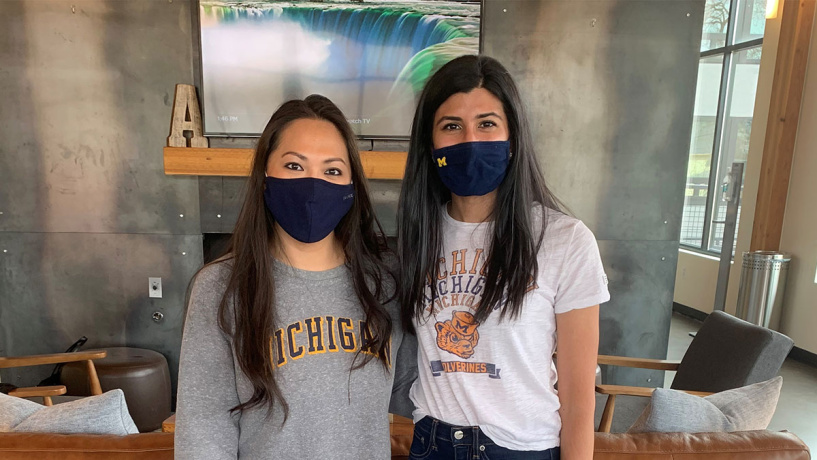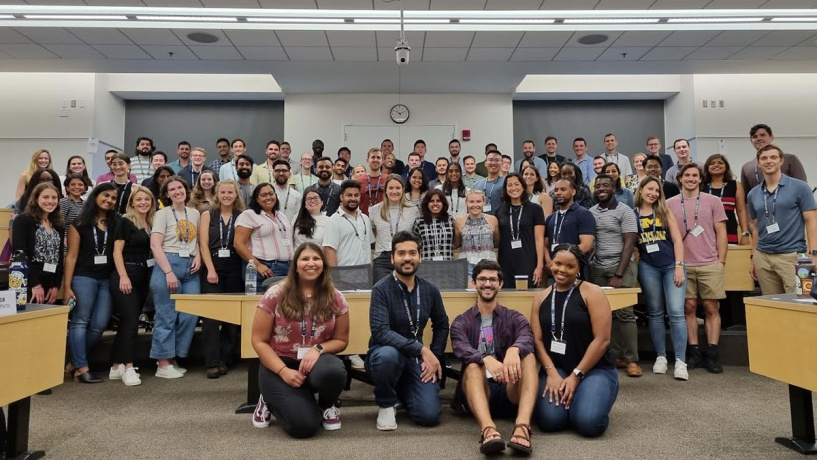What Being Afro-Latina Means to this Ross MBA
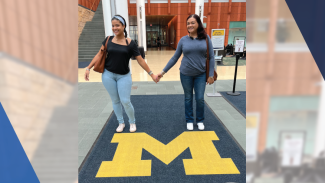
I’m the current co-president of Michigan Business Women, a community committed to creating a supportive space by addressing topics significant to women in business and providing a forum where diverse experiences, perspectives, and resources can be shared.
This year, we are celebrating the 30th anniversary of our organization’s Women in Leadership Conference. As we are working through the event planning, I sat down to reflect on my MBA journey thus far; and how I’ve used my identity to thrive at the Ross School of Business.
Growing up in Miami
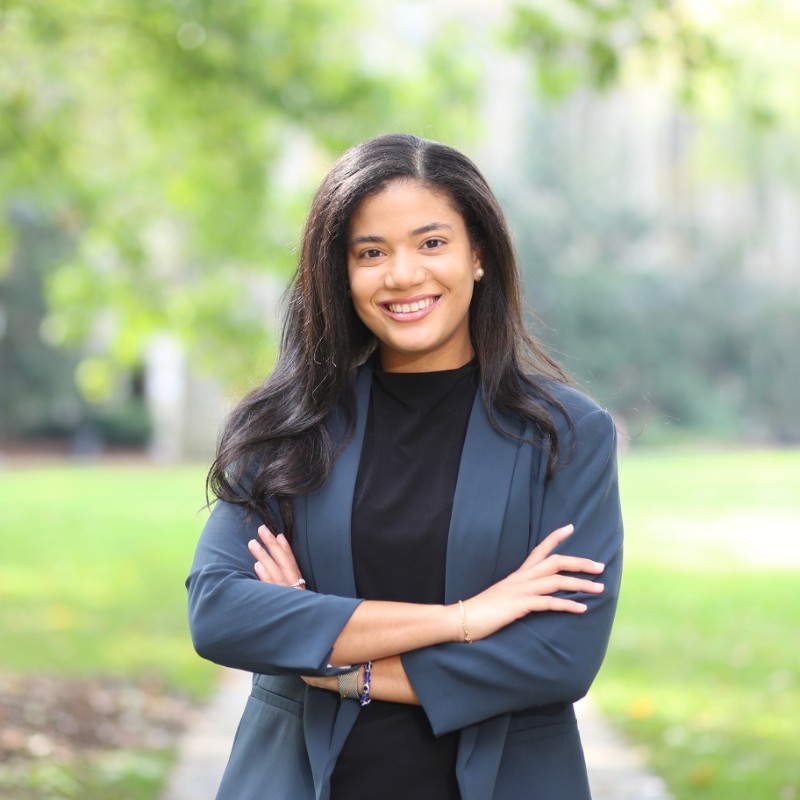
I am proud of my family’s legacy. The 1960s brought economic and political turbulence to Cuba. My mother applied for and received political asylum in the United States, and we moved in 2007. To support our family, my mother worked two or three full-time jobs. I quickly became the family’s translator – dealing with bank officials and medical professionals. I learned to ask questions, be confident, and use my voice to advocate for others.
You see, growing up in Miami meant that your neighbors are Jamaican, Guatemalan, and Colombian. I didn’t realize how enriching this environment was until I moved out of Florida. Growing up, I saw what true community looked like — teachers who would buy a thesaurus to help you learn English, guidance counselors who met with your parents in Spanish to help them understand what applying to financial aid looks like, and attending quinces* where people would dance salsa, bachata, kompa, and soca.
Learning important lessons as a first-gen student in undergrad
When I left to attend college, I was fortunate to live in the Leadership Living community at my undergraduate institution and I landed a part-time role as a peer financial educator. As a first-year, first-generation student, I figured out that I needed to understand money management and be resourceful to thrive in college. The student administration took me under her wing and even celebrated my 18th birthday with me!
I was lucky to be surrounded by community again - but I truly found my footing when I became a sister of Omega Phi Beta Sorority Inc.; being part of the Multicultural Greek Council taught me tolerance, relationship building, and time management. I was surrounded by Latinas who looked like me, came from immigrant backgrounds, were tour guides, sat on Student Government, led organizations, and were truly the movers and shakers on campus. They taught me the importance of never being too busy, approaching life with a sense of purpose, and remembering the roots where I come from. Blackness and Latinidad are not mutually exclusive, but being a gray line in a world that wants to see people as either Black or white is difficult.
Why I decided to pursue my MBA at Michigan Ross
Pursuing an MBA at Michigan Ross provided a fantastic opportunity to invest in my growth and in my professional development. I chose Ross for the overwhelming support I received from the Consortium community. Each student that I reached out to was helpful with their time, providing insights and encouragement. Right away, I found myself excited to be a part of a community that would help me grow and that would push me to be a better leader. Current students and alumni reviewed my application materials and even prepared me for my admissions interview.
At Ross, I’ve benefited from fantastic professors who are truly invested in their students. This semester, I’m working with Ross Professor Lindy Greer on an independent study to understand the capital raising process for early-stage Latina entrepreneurs. She has encouraged me to think broadly and ask difficult questions, even when I push back. I also love Professor Lindsey Gallo’s Corporate Financial Reporting course. Yes, you read that right, it’s an accounting course. She has figured out a way to distill financial reports in a digestible manner.
Attending Ross has also given me access to the broader Michigan ecosystem: Professor Morela Hernandez, at the Ford School of Public Policy who helped me brainstorm for my independent study; Professor Yeidy Rivero, the department chair of Film, Television, and Media, who shared her research on Cuban broadcasting’s industry position in the 1940s and 1950s; and Professor Teresa Satterfield, who allowed me to sit on her Language of Reggaeton class. Seeing Latinas in the world of higher education has made me feel welcomed in these academic spaces and has equipped me to be a better leader.
Using my identity as my superpower
I am constantly having to educate people about intersectionality and not letting others erase parts of my heritage –- especially when the majority of media representation of Latinas includes Sofia Vergara, Gina Rodriguez, and Camila Cabello. Even children’s books lack stories about Afro-Latina girls; stories talking about Latina protagonists are hyper-focused on overcoming struggles or focused on identity and race. Afro-Latina girls deserve to see their worlds full of color and go on fantastical adventures with vivid imagery and prose.
I will always face questions from people who refuse to understand intersectional identities. But that won’t stop me from letting them know I exist; and so does the Afro-Latino community.
I hope you care enough to ask and to listen attentively –- when it’s authentic, when it’s rooted in love — your energy will speak for itself. And please, start playing salsa, bachata, kompa and soca at all your gatherings — you won’t regret it.
I dedicate this to my grandmothers- my angels that are always with me and who would have loved to see me graduate.
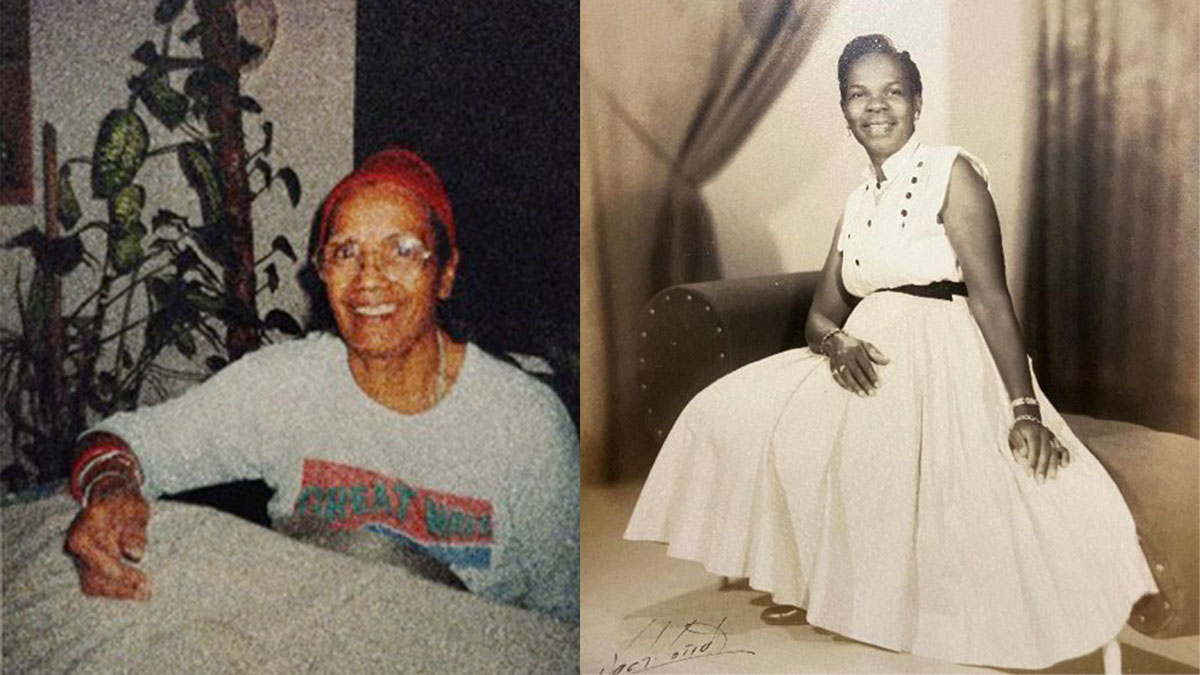
*quinceañeras






